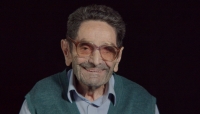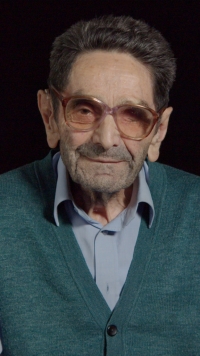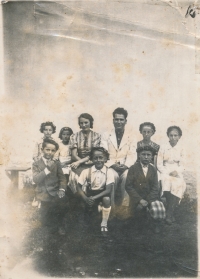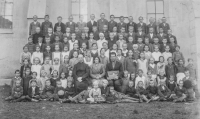Despite losing an eye, I spent my life mining asbestos

Download image
Václav Jágr was born on 28 September 1930 in the Czech village of Eibenthal, which lies in Romanian Banat. After his father’s death the witness grew up together with five other siblings and his mother. The witness’s grandfather and his mother’s father took the family under his wing. He operated a general store and pub in the village. Václav entered the local school just before the start of the Second World War, in this school his teacher was the Czech Boleslav Ivánek, who later became a Czechoslovak pilot and member of the Royal Air Force. The witness was wounded in the 1930s by exploding military munitions, which knocked out his left eye. From the age of fifteen he was employed in the local asbestos and coal mines, where he worked for a total of over thirty years. His sister’s family was deported to the area of Bărăgan in 1951. During the post-war re-emigration, his sister also left Romania for Czechoslovakia, but he himself never permanently left his birth village and never visited Bohemia. In September of 2020 he celebrated his ninetieth birthday and at the time of recording was the oldest man in Eibenthal (September 2022). Václav Jágr died on December 2023.



